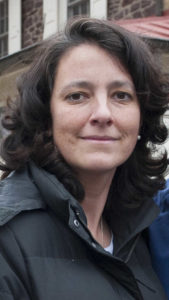Dr. Reed, an anesthesiologist and mother of six children, underwent a hysterectomy for fibroids in 2013. Her surgeon removed her uterus using a morcellator, a medical device that works like a handheld blender to slice up tissues inside the body.
At the time, Dr. Reed did not know she had uterine cancer. It was not until 8 days later when she was diagnosed with leiomyosarcoma that she realized the morcellator was responsible for dramatically worsening her cancer.
Fibroids are a common reason why women undergo a hysterectomy. They cause pain and bleeding — the same symptoms as uterine cancer, and there is no easy way to tell the difference.
The problem with morcellators is the risk of leaving little bits of tissue behind. If the tissue is actually cancer, the morcellator will “seed” tumors all over the woman’s pelvis, significantly worsening her chances of survival.
The year of Dr. Reed’s surgery, morcellators were used in nearly 15% of hysterectomies, or about 65,000 women per year. Their use dropped to 3% of hysterectomies by 2015.
Dr. Reed and her husband, Dr. Hooman Noorchashm, spent her final years crusading to ban morcellators. They wrote thousands of letters, articles, contacted manufacturers and the FDA, and collected the names of hundreds of other victims.
Soon after Wall Street Journal picked up her story, the FDA warned that morcellators should not be used in the “vast majority” of hysterectomies. An estimated 1 in 350 women with fibroids also has cancer, and roughly 1 in 500 has highly-aggressive leiomyosarcoma.
The FDA never banned or recalled morcellators, but most were pulled off the market after the FDA warning in 2014 by the biggest manufacturer, Ethicon. Over the next two years, Ethicon paid settlements of $100,000 to $1,000,000 each to roughly 100 victims with cancer.
The saga will go down in history as a major regulatory failure that could have been avoided with stricter approval requirements.
Experts have known about the cancer risk of morcellators for decades, which is why tissue containment bags were always used with hand-cranked morcellators. Power morcellators were approved in the 1990s, but the FDA did not approve the first tissue containment bags until April 2016.
Dr. Amy Reed was born on March 22, 1973 in Bristol, Pennsylvania. She graduated from the University of Pennsylvania with a Ph.D. in immunology and a medical degree specializing in anesthesia and critical-care. She treated victims of the Boston Marathon bombing in 2013, as well as the bomber.
She died on Wednesday May 24, 2017 at her home surrounded by her loving children, family and friends.
Source: Amy Reed, Doctor Who Fought a Risky Medical Procedure, Dies at 44


